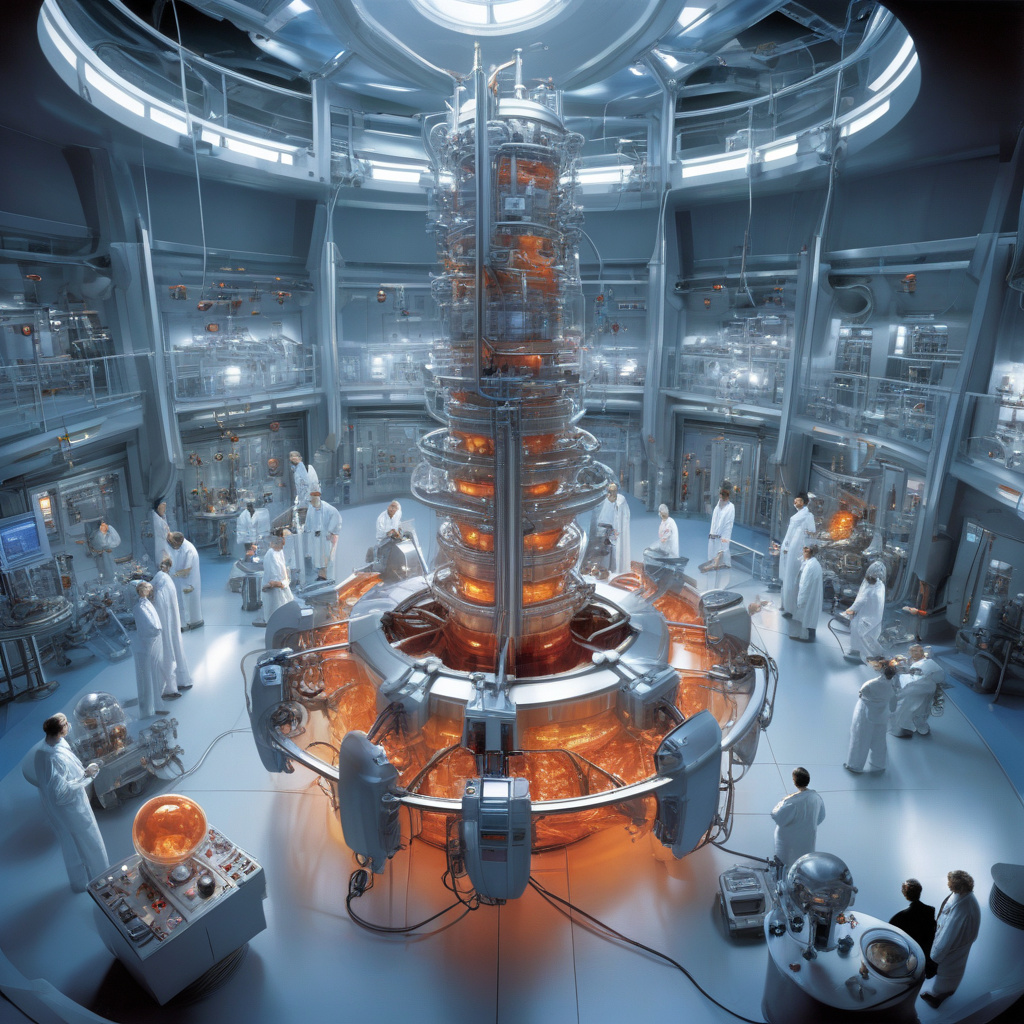China’s New AI Predicts Nuclear Fusion Plasma Failures with 94% Accuracy
A team of researchers headed by Professor Sun Youwen at the Hefei Institutes of Physical Science (HFIPS) in China has made a groundbreaking advancement in the field of nuclear fusion. They have developed an artificial intelligence (AI) system that can predict nuclear fusion plasma failures with an impressive accuracy rate of 94%. This innovation marks a significant step forward in the quest for sustainable and efficient energy sources.
Nuclear fusion is the process that powers the sun and stars, where light atomic nuclei fuse together to form heavier nuclei, releasing tremendous amounts of energy in the process. Scientists have long sought to replicate this process on Earth as a clean and virtually limitless source of energy. However, one of the key challenges in achieving practical nuclear fusion is the instability of the plasma that fuels the reaction.
Plasma instabilities can lead to disruptions in the fusion process, limiting its efficiency and potentially causing damage to the equipment. Identifying and mitigating these instabilities is crucial for the success of nuclear fusion as a viable energy source. This is where the new AI system developed by the HFIPS researchers comes into play.
By analyzing vast amounts of experimental and theoretical data on plasma behavior, the AI system is able to predict with 94% accuracy when and where plasma instabilities are likely to occur. This predictive capability gives scientists valuable insights into how to adjust the conditions within the fusion reactor to prevent failures and optimize energy output.
The implications of this breakthrough are far-reaching. With more accurate predictions of plasma behavior, researchers can fine-tune their experimental setups and operational parameters to achieve more stable and efficient fusion reactions. This brings us one step closer to realizing the dream of clean, sustainable energy from nuclear fusion.
Moreover, the success of China’s new AI system underscores the growing importance of artificial intelligence in scientific research. AI technologies have proven to be invaluable tools for analyzing complex data sets, identifying patterns, and making predictions that would be difficult or impossible for humans to discern on their own. In the field of nuclear fusion, AI is revolutionizing the way researchers approach the challenges of plasma instability.
As we look to the future of energy production, innovations like the AI system developed by Professor Sun Youwen and his team at HFIPS offer hope for a cleaner, greener, and more sustainable world. By harnessing the power of artificial intelligence to overcome the hurdles of nuclear fusion, we are paving the way for a brighter tomorrow powered by limitless, emissions-free energy.
In conclusion, China’s new AI system for predicting nuclear fusion plasma failures with 94% accuracy represents a significant milestone in the advancement of fusion energy research. With this cutting-edge technology at their disposal, scientists are better equipped than ever to overcome the challenges of plasma instability and bring us closer to achieving practical fusion energy on a global scale.
fusionenergy, artificialintelligence, sustainablefuture, scientificbreakthroughs, cleanenergyrevolution












